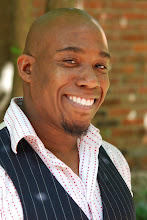I recently saw Woody Allen’s latest film “Midnight in Paris.” Owen Wilson stars as an American writer named Gil living in modern-day Paris who yearns to experience the Paris of the 1920s. He believes the past is more inspiring, filled with creativity and is magical. Through a turn of events he is transported to the exact time he longs for where he meets the likes of Cole Porter, Ernest Hemingway, Pablo Picasso, F. Scott Fitzgerald and Gertrude Stein. Along the way Gil also meets Adriana played with beautiful charm by Marion Cotillard. Gil experiences all the joie de vivre of Paris’ 1920s and it seems he is set to stay there until another turn of events finds him and Adriana in the 1890s, her ideal time as opposed to the 20s which she finds far less exciting. Suddenly he realizes that the only ideal time is that of his own and he returns with a greater knowledge of his current self and the value of now.
It made me think immediately of all those who singers and fans who yearn for the operatic giants of the past. Many of us have had that experience that turned us on to opera and have heard the “greats” in one of their signature roles. We were transfixed by the sheer excitement, beauty and artistry that they shared. We often hear that no one sings like the greats (some say the 60s and 70s, others the 40s and 50s, while others hearken back to the 20s and 30s etc…) and yet after viewing Mr. Allen’s latest movie, I wonder if we had the opportunity to visit those sacred monsters back during the “Golden Age” if they would think that they were in the Golden Age of Singing or would they want to be back in the days of Lamperti, Melba, Garcia etc…
Certainly things are different today. Singers can barely afford to be part of this career with voice lessons, auditions, coachings and travel being so expensive. Many young singers can barely stay afloat financially, emotionally, artistically because of so many demands made on the novice singer. We also live in an age where information can be found at the touch of a button making the young singer less likely to learn the art of opera the “old fashioned way.” But through all of the changes in technology, pace of life, support for the arts and the evolution of tonal, dramatic and physical preferences, the art of opera has survived and there are great singers today who, in my humble opinion, sing as well as many of the past. Are they all super stars? No. Are they all household names? No. Some of them are well-known stars. Some are constantly working but are not known by the general public and are known only to those who immerse themselves in opera while others are just waiting for their big break into the “business.”
I don’t mean to imply that we should ignore the legacy of the great artists of the past as they have left us many lessons and their connections to the composers, pedagogues and singers of years gone by is innvaluable. The past gives a long lineage of information and inspiration. As a baritone I like to know that baritone Antonio Tamburini (1800-1876) gave way to “King of the Baritones” Mattia Battastini (1856-1928), Titta Ruffo (1877-1956) known as the “Voice of the Lion” and the elegant Giuseppe DeLuca (1876-1950). Other non-Italians of that time included Frenchman Victor Maurel (1848-1923), Englishman Sir Charles Santley (1834-1922). These led to the great singers Tito Gobbi (1913-1984), Ettore Bastianini (1922-1967), the Welsh baritone Geraint Evans (1922-1992), and a host of American baritones including Lawrence Tibbett (1896-1960), Leonard Warren (1911-1960) and Robert Merrill (1917-2004). This led to the likes of Renato Brunson (b. 1934), Sherill Milnes (b. 1935) and Thomas Allen (b. 1944). This is by no means a comprehensive list, but some of the names that I study.
I imagine when my generation turns 70 or 80, they will talk of the vocal beauty of Renee Fleming, the stunning fioritura of Cecilia Bartoli, the suave, elegant legato of Dmitri Hvorostovsky, the fiery temperament of Angela Gheorghiu, the dazzling commitment of Natalie Dessay, the vocal allure of Jonas Kaufman, the grand voice of Stephanie Blythe, the longevity of career of Thomas Hampson, the dynamic range of Bryn Terfel, the sensual sound of Denyce Graves and so on. The singers of the future will constantly be compared to the singers of our time as well as those of the past. Long live the current Golden Age!
Sunday, July 31, 2011
Subscribe to:
Post Comments (Atom)

Great blog Eric! I loved Woody Allen's exploration of this idea in the movie (I too, would pick the 20's, and then fin de siecle). Maybe there is a natural tendency to romanticize eras gone by. You are right - it's important to "be here now" and appreciate all that our time is.
ReplyDelete